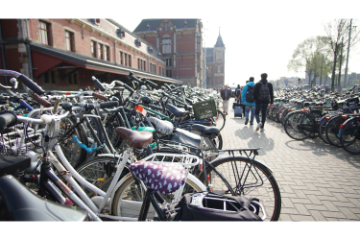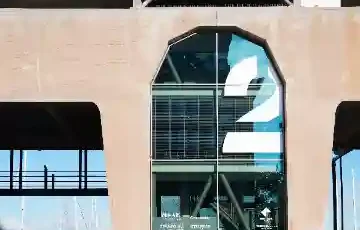
A copyright license under Dutch law grants you as the rights holder the ability to authorize others to use your work while retaining ownership. However, in 75% of licensing agreements, disputes arise from unclear terms regarding usage rights, compensation, or territorial restrictions.
A licensing agreement in the Netherlands governs the relationship between the licensor—the creator or rights holder—and the licensee who may use the work. According to Article 2(1) of the Dutch Copyright Act (Auteurswet), Dutch copyright law protects literary, scientific, and artistic works, including texts, photographs, software, and designs. The license determines the scope of usage rights without transferring ownership.
What usage rights do you grant in a copyright license under Dutch law?
The description of granted rights determines what the licensee may do with your work. Clear delineation prevents disputes over permitted applications, saving an average of €15,000 in legal costs.
Include the following specifications in your copyright license agreement:
- The exact work covered by the license (photograph, text, software, logo)
- Permitted actions such as reproduction, publication, or modification
- The medium or platform where use is authorized
- Any limitations on adaptations or alterations of the work
Software licenses typically include user restrictions: the number of individuals who may use the software or computers on which installation is permitted. For texts or images, specify whether publication in print media, online channels, or both is allowed. The more precisely you describe usage rights, the less room exists for divergent interpretations.
Additionally, determine whether the licensee may grant sublicenses to third parties. Without explicit permission in the agreement, sublicensing remains prohibited. For commercial exploitation of copyrights, legal specialists advise documenting product liability and promotional terms as well.
How do you determine licensing fees for copyright in the Netherlands?
The amount and structure of compensation form a core component of every licensing agreement. Three common compensation models exist:
One-time payment – A fixed amount upon concluding the agreement, independent of actual usage. This method provides certainty for both parties but does not account for commercial success.
Periodic licensing fees – A monthly or annual amount the licensee pays for continued usage rights. This structure suits long-term collaborations and provides predictable income.
Royalties – A percentage of revenue, profit, or an amount per product sold incorporating the work. Royalties link your compensation to commercial results. In 60% of merchandising licenses, royalty percentages range between 5% and 15% of the consumer price.
Moreover, milestone payments exist: phased payments upon predetermined events such as market introduction or revenue thresholds. This construction protects the licensee against a license that proves valueless, while you as licensor benefit from successful exploitation.
For royalty arrangements, include audit provisions: the right to have sales data verified by an accountant. Without an audit clause, insight into correct compensation calculation is absent. For international licenses, specify the currency and country of settlement to limit foreign exchange risks.
A minimum annual compensation prevents the licensee from “shelving” your work without active exploitation. The so-called anti-warehousing provision stipulates that the license terminates upon insufficient commercial activity.
What are the legal requirements for exclusivity under Dutch law?
An exclusive license means only the licensee may use the work within the agreed territory or segment. In 40% of B2B licensing agreements, rights holders grant exclusivity to motivate licensees toward substantial investments in marketing or product development.
Document in the agreement:
- Whether exclusivity is geographically limited (for example, the Netherlands, Benelux, or Europe)
- Whether market segments are excluded where you remain active yourself
- Under what conditions exclusivity terminates due to insufficient performance
- Whether you as licensor may continue using the work alongside the exclusive licensee
With a non-exclusive license, you retain the right to grant identical rights to multiple parties. This variant suits standard products such as stock photographs or software tools where broad distribution is preferable to market protection for individual customers.
According to Article 2(1) of the Dutch Copyright Act, copyright remains with you as creator, even with exclusive license grants. The licensee obtains usage rights but does not become the owner. For transfer of complete ownership rights, a separate assignment agreement is necessary, regulated through Article 2(1) of the Copyright Act.
In licensing agreements for innovative products, exclusivity is often linked to performance standards: if the licensee fails to achieve minimum revenue of €100,000 within two years, exclusivity terminates automatically. This performance requirement protects your commercial interests without requiring active intervention.
How do you regulate termination and dispute resolution in Dutch law?
Termination grounds and procedures prevent prolonged conflicts. In over 85% of licensing disputes, ambiguity regarding cancellation or contract termination plays a role.
Include these termination grounds in the agreement:
- Non-payment by the licensee for more than 14 days after formal notice
- Infringement of your copyright by the licensee
- Bankruptcy or suspension of payments of either party
- Material breach in fulfillment of contractual obligations
Furthermore, specify the duration: for a fixed term (for example, three years) or indefinitely with a notice period. For fixed-term licenses to consumers, Dutch consumer protection law applies: automatic renewal is only permitted if the consumer may terminate at any time. This restriction does not exist for commercial agreements.
Upon termination, determine what happens to usage rights. Typically, the usage right ends immediately, but sometimes the licensee receives a phase-out period to sell remaining inventory. Also establish whether the licensee must destroy or return all copies and adaptations.
For dispute resolution, choose between:
- Dutch jurisdiction via the District Court of Amsterdam or another competent court
- Arbitration through a specialized institution such as the Netherlands Arbitration Institute
- Mediation as a mandatory first step before incurring litigation costs
Do you need certainty regarding your legal position with copyright licenses? Specialized lawyers in Amsterdam analyze your situation and advise on optimal contract structures that protect your intellectual property while maximizing commercial opportunities.
Which applicable law governs international copyright licenses?
For licensing agreements with parties outside the Netherlands, the choice of applicable law determines where you must litigate disputes. In 65% of international IP disputes, the choice of law leads to significant cost differences.
Dutch law offers you as licensor:
- Clear legal frameworks through the Dutch Civil Code and Copyright Act
- Access to specialized courts with IP expertise
- Reasonable proceedings duration averaging 12-18 months in first instance
- Possibility for preliminary injunctions in cases of acute infringement
Do you collaborate with a licensee in China, Germany, or the United States? Explicitly stipulate that Dutch law applies and disputes are submitted to Dutch courts. Without a choice of law, courts apply conflict-of-law rules, leading to unpredictable outcomes.
For contracts within the European Union, the Rome I Regulation grants parties freedom to choose applicable law. Therefore, you may also choose German or French law if advantageous for specific situations. However, consider that foreign proceedings involve higher costs and longer duration.
Beyond applicable law, specify forum selection: at which court must disputes be filed. For commercial B2B agreements, this arrangement is binding. Consumer contracts are subject to protective rules that limit forum selection.
International licensing agreements require attention to VAT implications: for cross-border services, the reverse charge mechanism often applies. Consult a tax advisor for correct invoicing.
Practice Example: Software License for SME Company
An Amsterdam software company developed an innovative CRM tool and granted an exclusive license to a distributor for the Benelux region. The licensing agreement specified:
- Usage rights for maximum 250 end users per client
- Royalty of 25% on the sales price excluding VAT
- Minimum annual revenue of €75,000 to maintain exclusivity
- Monthly reporting of sales data with audit clause
- Dutch courts competent for disputes
After two years, the distributor generated only €45,000 in revenue. The anti-warehousing provision took effect: the software developer could terminate exclusivity without compensation. Due to clear contractual terms, termination proceeded without legal conflict. The developer found a new distributor with better market penetration within six weeks.
This example demonstrates the importance of performance requirements and measurable criteria in licensing agreements. Without such clauses, the software developer would remain bound to an underperforming distributor for years.
Contact our law firm in Amsterdam for personalized legal advice regarding your specific copyright license. Our specialists evaluate your situation and draft watertight contracts that optimally protect your interests.









